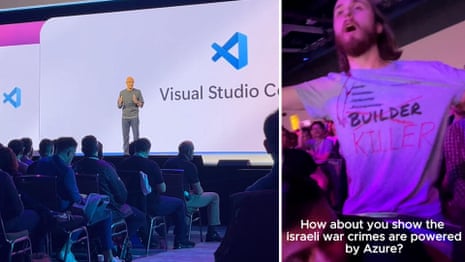Microsoft Build Protests: How Employee Activism Rocked the 2025 Developer Conference

The 2025 Microsoft Build conference, traditionally a showcase for cutting-edge technology and innovation, faced unexpected turbulence as employee-led protests took center stage. This year, demonstrations focused on Microsoft's alleged involvement with technology used in the Israel-Gaza conflict, sparking a broader debate about tech ethics and employee responsibility.
A Defining Moment in Tech Activism
During CEO Satya Nadella’s anticipated keynote, a Microsoft engineer, Joe Lopez, disrupted the presentation by calling attention to Microsoft's Azure services and their reported deployment in Israeli operations. Lopez, who worked on Azure's firmware, confronted Nadella and was promptly escorted out by security. His protest, which demanded Microsoft take a stand "against the use of its technology in warfare," highlighted growing unrest among tech workers. Read a detailed account from The Guardian's coverage of the disruption.
Outside and inside the conference, a group known as No Azure for Apartheid (Noaa) coordinated demonstrations. They have criticized Microsoft’s contracts with Israeli defense agencies, especially regarding cloud and AI technologies. This activism signaled that for many employees, corporate responsibility now extends far beyond boardrooms and product launches.
Why the Microsoft Build Protests Matter
Protest organizers argue that Microsoft’s cloud solutions, particularly Azure, facilitate surveillance and data analysis that may aid military decision-making. Despite the company’s assurances—citing an independent investigation into the use of its technology—workers remain skeptical. In The Verge's report, Joe Lopez shared his disillusionment with company leadership and their response to repeated employee concerns. Lopez expressed frustration that Microsoft had not taken stronger action or clarified its role in controversial international activities.
Notably, these protests at Build are part of a wider movement sweeping through the tech sector. Earlier in the year, Google faced similar employee actions over contracts with the Israeli government. At Microsoft, previous protests led to dismissals, increasing tensions and spotlighting the risks whistleblowers face within large organizations.
Company Response and the Road Ahead
Microsoft responded to these claims by stating that a third-party audit found "no evidence" of its technology being used to harm civilians. Still, skepticism persists both within and outside the company, especially as groups like No Azure for Apartheid share leaks and media reports detailing Azure’s potential military applications.
The 2025 Microsoft Build protests have brought necessary attention to the conversation about tech ethics, transparency, and the power of employee voices. More than a one-time event, these actions reflect a shifting landscape where workers are increasingly willing to challenge leadership on global and ethical issues.
Conclusion: The Growing Influence of Tech Workers
As the dust settles from the Microsoft Build protests, one thing is clear: employee activism is reshaping how tech companies approach responsibility and accountability. These events have not only forced Microsoft to defend its practices but have also inspired dialogue around the true impact of technological innovation.
For readers interested in further details about the protests and their background, refer to The Guardian’s in-depth feature and The Verge’s coverage for comprehensive insights. As more employees raise their voices, the future of technology—and the values it upholds—may well be determined as much from the ground up as from the top down.